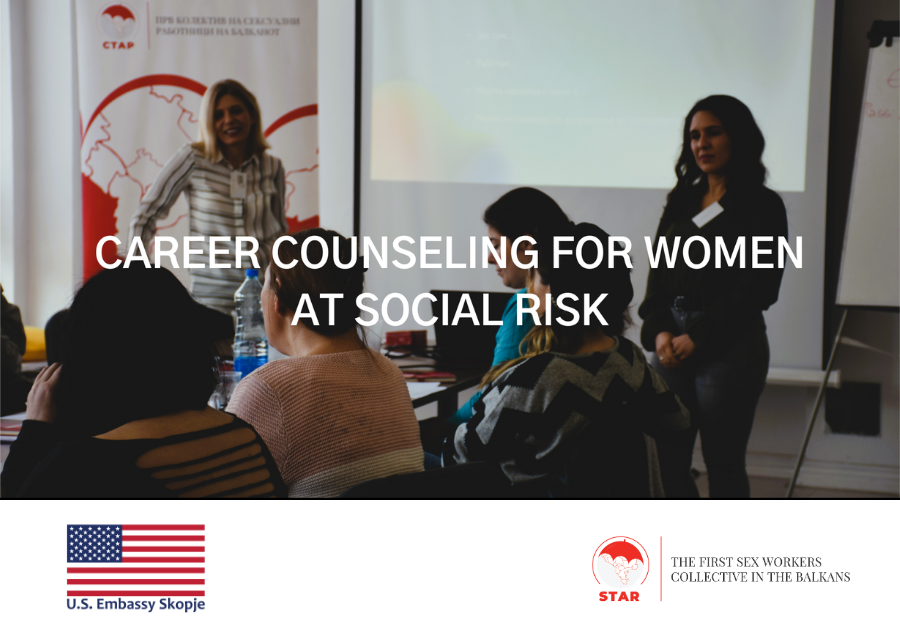The career plays a vital role in our daily life and is a prerequisite for a successful and fulfilling life. Career is not only the work we do when we are employed, it also includes more things throughout life, such as our education, our role in society, in the family, as well as the way we spend our free time.
We started our first session titled “What is a career and why is it important to me?” as an integral part of the career counselors (career angels) training program among marginalized women in North Macedonia, with the importance of career, career planning and career development, which was held yesterday on February 15th 2024 in cooperation with Macedonian Association of counselors of career development (АSК), in the premises of CRC – Civic Resource Centre. Eight female representatives of marginalized communities started their training in career counseling and embraced the opportunity of becoming competitive in the labor market.

The inclusion of marginalized women’s communities is a significant challenge in the labor market in North Macedonia due to the multifaceted and intersecting stigma and discrimination that these women face on a daily basis. In addition, marginalization plays a key role in their risk of poverty. This is apparent through the low employment rates of marginalized women in our country, as well as the challenges these women face when it comes accessing the labor market.
During the training, our eight career angels will have the opportunity to acquire skills related to the process of career planning and upgrading, as well as to learn more about their role, how they can contribute to their communities and to other marginalized women at social risk with the goal of continued integration of these women in the labor market.

We are conducting the career counselors (career angels) training program among marginalized women in North Macedonia within the frames of the project Career Angels – An Innovative Career Development Model for Women at Social Risk.
This project was funded through a U.S. Embassy grant. The opinions, findings, and conclusions or recommendations expressed herein are those of the implementers/authors and do not necessarily reflect those of the U.S. Government.

